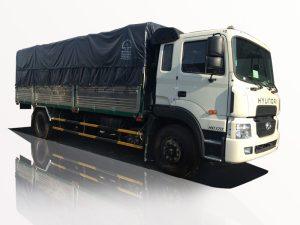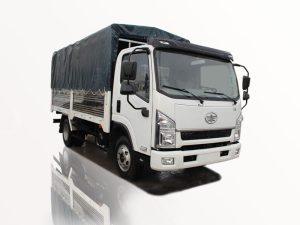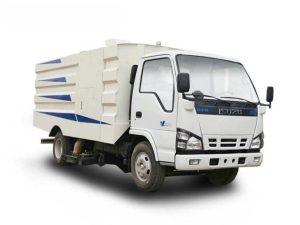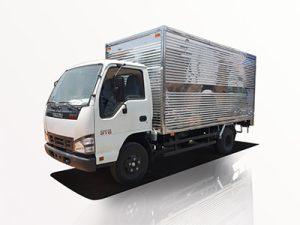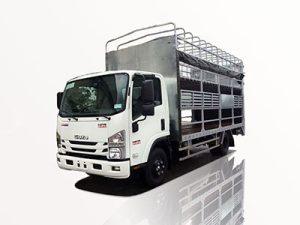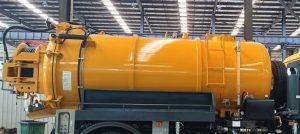Monday to Saturday - 8:00 -17:30
Understanding the Dump Truck Engine: A Comprehensive Guide
Dump trucks are essential vehicles in the construction, mining, and waste management industries, renowned for their ability to efficiently transport heavy loads. At the heart of these machines is the dump truck engine, a powerful component that ensures performance, reliability, and efficiency. In this article, we will explore everything you need to know about dump truck engines, including their types, functionalities, maintenance, and more. If you’re considering investing in a dump truck or simply want to expand your knowledge, this guide is for you.
Table of Contents
- 1. What is a Dump Truck Engine?
- 2. Types of Dump Truck Engines
- 3. Features and Specifications
- 4. Understanding Engine Performance
- 5. Maintenance Tips for Dump Truck Engines
- 6. Common Problems and Solutions
- 7. The Future of Dump Truck Engines
- 8. Practical Examples and Tips
- 9. Frequently Asked Questions
1. What is a Dump Truck Engine?
A dump truck engine is a crucial component that powers the vehicle, allowing it to carry and transport heavy loads. Specifically designed for rigorous operations, these engines are built to endure challenging conditions. The performance of a dump truck engine directly impacts fuel efficiency, payload capacity, and overall operational efficiency. Understanding how these engines work is essential for ensuring optimal performance and longevity.
2. Types of Dump Truck Engines
Dump truck engines can be categorized into several types based on various criteria. Here’s a breakdown of the most common types:
2.1 Gasoline Engines
Gasoline engines are less common in larger dump trucks due to their lower torque and power output compared to diesel engines. However, they are often found in smaller models.
2.2 Diesel Engines
Diesel engines dominate the dump truck market, offering superior torque, better fuel efficiency, and higher power output. They operate using compression ignition, making them robust and suitable for heavy-duty applications.
2.3 Electric Engines
With the rise of eco-friendly technologies, electric dump truck engines are emerging. Although still in the developmental phase for heavy-duty applications, they promise lower emissions and reduced operating costs.
2.4 Hybrid Engines
Combining traditional internal combustion engines with electric motors, hybrid engines offer improved fuel economy and lower emissions while providing the necessary power for dumper trucks.
3. Features and Specifications
Understanding the features and specifications of dump truck engines is essential for selecting the right vehicle for your needs. Here are some key specifications to consider:
| Specification | Description |
|---|---|
| Engine Displacement | The total volume of all cylinders in the engine, affecting power and efficiency. |
| Horsepower | The amount of power the engine produces. Higher horsepower allows for heavier loads. |
| Torque | The rotational force produced by the engine, essential for starting and carrying heavy loads. |
| Fuel Type | Most commonly diesel; however, gasoline, electric, and hybrid options exist. |
| Engine Configuration | Typically inline or V-type configurations, influencing performance and compactness. |
4. Understanding Engine Performance
Engine performance in a dump truck is paramount, closely tied to aspects such as load capacity and fuel efficiency. Key factors affecting performance include:
4.1 Power-to-Weight Ratio
This ratio is calculated by dividing the engine’s horsepower by the truck’s weight. A higher power-to-weight ratio means better acceleration and climbing ability.
4.2 Fuel Efficiency
Fuel efficiency is vital for operational costs. Dump trucks vary in their fuel consumption rates, often measured in miles per gallon (MPG) or liters per 100 kilometers (L/100km).
4.3 Emission Standards
Regulations regarding emissions are becoming more stringent. Engines must comply with EPA emissions standards to limit their environmental impact.
5. Maintenance Tips for Dump Truck Engines
Regular maintenance is crucial for maximizing the lifespan of a dump truck engine. Here are some practical maintenance tips:
5.1 Regular Oil Changes
Changing the oil at the manufacturer-recommended intervals ensures proper lubrication and prevents engine wear.
5.2 Air Filter Maintenance
Regularly check and replace air filters to keep the engine clean, ensuring efficient combustion and maintaining power.
5.3 Fuel System Checks
Regularly inspect the fuel system for blockages or leaks, as they can lead to engine performance issues.
5.4 Cooling System Maintenance
Monitor coolant levels and inspect for leaks to ensure optimal engine temperature management. Overheating can cause severe damage.
5.5 Professional Inspections
Annual inspections by qualified mechanics can detect underlying issues before they become major problems.
6. Common Problems and Solutions
Even with regular maintenance, dump truck engines can face issues. Here are some common problems and their solutions:
6.1 Overheating
Overheating can be caused by low coolant levels, a failing thermostat, or a blocked radiator. Regular checks can help prevent this issue.
6.2 Poor Fuel Economy
Poor fuel economy could result from dirty air filters, bad injectors, or tire pressure. Addressing these factors can improve efficiency.
6.3 Starting Problems
Starting difficulties may arise from battery issues or fuel delivery problems. Regular battery checks and fuel line inspections can help.
6.4 Exhaust Smoke
Excessive smoke from the exhaust can indicate engine trouble such as fuel injector failure or valve issues. Professional diagnostics are recommended.
7. The Future of Dump Truck Engines
The future of dump truck engines is moving towards enhanced efficiency and reduced environmental impact. Innovations include:
7.1 Electrification
Electric dump trucks are being tested for mainly urban applications where emission regulations are strict.
7.2 Hybrid Technology
Hybrid engines continue to improve, providing the power needed while reducing fuel consumption and emissions significantly.
7.3 Advanced Diagnostics
Modern dump truck engines are now equipped with sensors and diagnostics systems that help monitor performance and predict maintenance needs.
8. Practical Examples and Tips
When considering a dump truck engine, it’s essential to select options that match your operational needs. Here are some practical examples:
8.1 Choosing the Right Engine
If your work involves heavy hauling in rugged terrain, consider a diesel engine with high torque output. Alternatively, for shorter, urban jobs, a smaller gasoline engine may suffice.
8.2 Customizing Performance
Aftermarket performance enhancements like custom exhaust systems or chip tuning can boost engine performance, provided they are compatible and legal.
8.3 Operating Techniques
Training operators to use dump trucks efficiently, such as avoiding sudden accelerations or heavy braking, can enhance engine life and fuel economy.
9. Frequently Asked Questions
9.1 What is the average lifespan of a dump truck engine?
The average lifespan of a dump truck engine ranges from 10 to 15 years, depending on maintenance and usage conditions.
9.2 How often should I perform maintenance on my dump truck engine?
Regular checks should be conducted at intervals of 5,000 to 10,000 miles, or as recommended by the manufacturer.
9.3 Are electric dump truck engines available?
Yes, electric dump trucks are emerging in the industry, particularly for applications in urban settings where emissions are regulated.
9.4 What kind of oil should I use for my dump truck engine?
Always refer to the manufacturer’s guidelines, but typically, high-quality diesel engine oil that meets API specifications is recommended.
9.5 Can I tune my dump truck engine for better performance?
Yes, but make sure to work with a professional to avoid voiding warranties or negatively affecting engine longevity.
9.6 Why is my dump truck engine running rough?
A rough-running engine could indicate issues with fuel delivery, ignition, or air intake. A thorough inspection is recommended to troubleshoot the problem.


